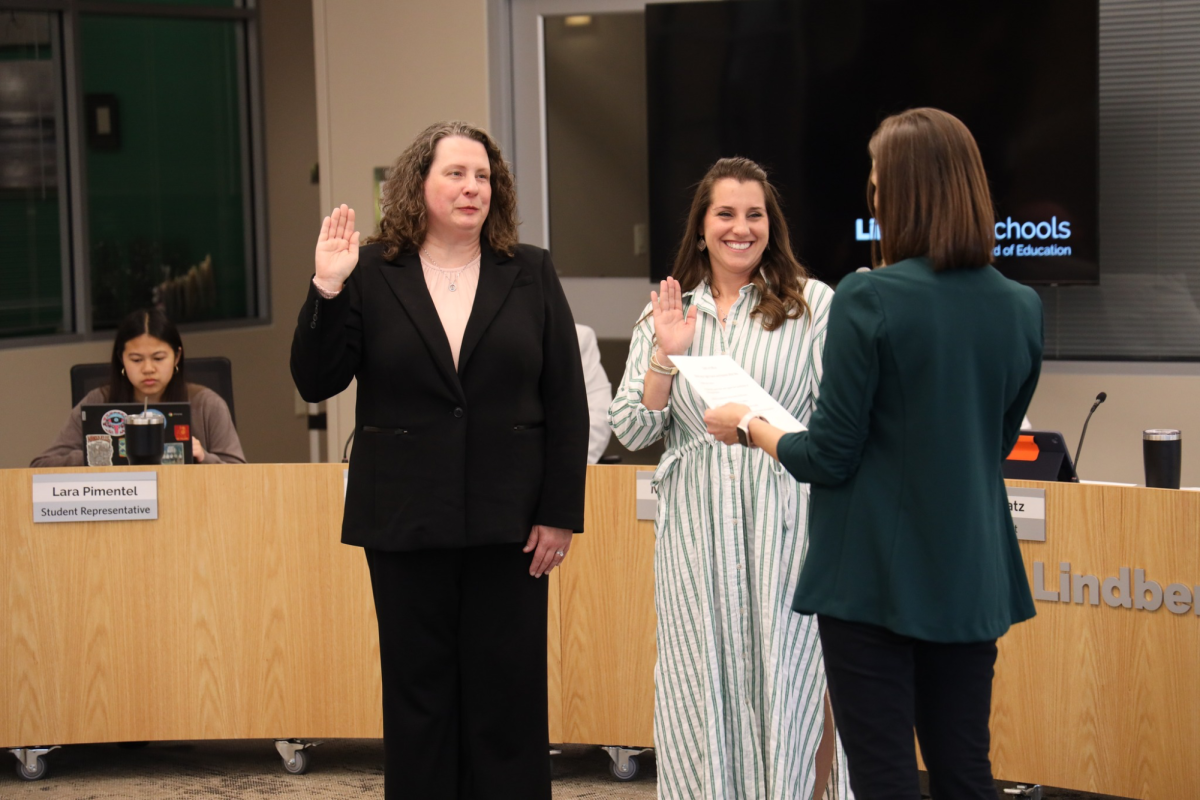Fifth District Councilman Barbara Fraser’s smoking-ban bill has been called both an “important first step” toward improving public health and a “joke,” but the University City Democrat’s legislation will have a new, official name come November: Proposition N.
After the County Council’s final approval last week of legislation calling for an election to decide on a countywide public smoking ban, County Executive Charlie Dooley endorsed the bill Friday.
“I believe St. Louis County has a responsibility to lead by example and this measure puts us on a course to address this important public health issue, which, in the end, could help us get a more effective statewide smoking ban,” Dooley said in a statement. “In addition, I strongly believe St. Louis County voters deserve the opportunity to have their voices heard and to decide the fate of this indoor smoking ban.”
Dooley, who before Friday had not publicly expressed his opinion on Fraser’s bill, previously stated he would prefer a statewide smoking ban to a county ordinance.
The legislation missed the county’s filing deadline for the Nov. 3 general election, but St. Louis County Circuit Court Judge John Ross ordered Friday that Prop N be placed on the ballot.
Councilmen voted 4-3 Aug. 25 on the bill’s final passage — the same way they had the week before, when the legislation was up for perfection. Voting in favor were Fraser; 3rd District Councilman Colleen Wasinger, R-Town and Country; 6th District Councilman Steve Stenger, D-south county; and 7th District Councilman Greg Quinn, R-Ballwin. Opposed were 1st District Councilman and Chair Hazel Erby, D-University City; 2nd District Councilman Kathleen Burkett, D-Overland; and 4th District Councilman Mike O’Mara, D-north county.
The smoking-ban ordinance that will go to voters would take effect Jan. 2, 2011 if approved.
It prohibits lighting up in all enclosed public places, but exempts casino gambling floors, bars whose gross food sales are no more than 25 percent and Lambert-St. Louis International Airport’s smoking lounges. The ordinance also contains exemptions for private residences, private nursing-home rooms, private clubs, cigar bars and performers who smoke on stage as part of a production.
Bars that wish to be excluded from the ban must have opened for business on or before Jan. 2, 2011, apply for a “certificate of exemption” with the Department of Revenue and pay a $35 application fee.
Once given exemption status, bar owners have 100 days to submit to the DOR “a signed an notarized statement … identifying the actual gross revenue and liquor sales for the previous 90 days of operation.” Further, bar owners must place their DOR exemption certificate “in a place visible to the public from its exterior.”
Individuals caught smoking in non-exempt places will be fined $50 for each offense, according to the ordinance.
Businesses found in violation of the ordinance will be fined $100 for the first offense, $200 for a second violation within one year and $500 for each subsequent violation within one year.
Fraser’s bill changed significantly from its July 21 introduction to its final passage last week. The first smoking-ban ordinance she proposed, a “clean-air bill,” exempted only private residences, private nursing-home rooms, private clubs, cigar bars and performers on stage. However, councilmen defeated it 4-3 last month.
The second version of the ordinance contained casino floor and limited bar exemptions; the council both adopted and gave initial approval to that substitute bill, but Fraser subsequently dropped the whole legislation over concerns about the way councilmen handled its votes that night.
When she re-introduced the bill the following week, it contained the third and would-be successful version of the ordinance, which contained the exemption for Lambert’s smoking lounges. In addition, contingency statements binding the fate of the casino floor and bar exemptions to St. Charles or St. Louis city’s passage of bans that contained similar exemptions were removed.
Fraser also was prepared to introduce a fourth version of the ordinance last week in case councilmen had “a change of heart” and didn’t give final approval to the third version, she said. The fourth version removed bars from the list of exemptions while still excluding casino floors and Lambert’s smoking lounges from the ban.
Although she would’ve preferred a smoking ban with no exemptions, Fraser has said she had to be “practical” to move the legislation through the council.
“This bill has one clear, very simple objective, and that’s to protect the health and safety of our St. Louis County residents. That’s been my No. 1 priority and it remains a priority,” Fraser said during the final vote on her bill last week. “The scientific evidence is indisputable that secondhand smoke harms human health … A bill without exemptions would be ideal. We tried to have a bill without significant exemptions, and that did not pass. The reality is that in this process, I will repeat, is that nothing would get passed unless we made compromises.”
However, smoking ban supporters and opponents alike have indicated they are unimpressed with the exemptions in all three proposed versions of the ban.
Owners of businesses that wouldn’t be exempt from the ban, such as bar-and-grill establishments, claim the measure is unfair and, if approved by voters, would cause them to lose business and/or shut down completely.
And smoke-free advocates now argue that the legislation is too weak from compromises to be effective.
Erby, Burkett and O’Mara all have said the version of the ban going to voters was hastily put together and is unfair to both the business community and employees at workplaces where smoking still would be allowed.
But Stenger says he’s glad south county will get to vote on this issue — unlike last year, when the county established eight trash districts in unincorporated areas, with one authorized hauler per district.
“That was my primary concern,” Stenger told the Call after last week’s council meeting. “We had the trash issue, the trash monopoly issue. Many in our district — many — called for a vote of the people.
“They wanted a vote on the issue on whether trash districts would be established … I wanted the people to be able to vote on (the smoking ban) just like the people had called for with the trash issue.”
Stenger said the ban’s exemptions for casinos and certain bars reflect the “economic reality of the situation for our district, the interests of our district, the people of our district, the businesses of our district.”
Pinnacle’s River City casino is scheduled to open in Lemay in January. Stenger said the “multimillion dollar” operation was invited to a county where smoking currently is permitted in casinos.
“When we invited them in, there wasn’t a smoking ban,” he said. “I think now to change the rules — and this is a heavily regulated, a particularly licensed business.
“To change the rules midstream, I don’t think is fair, particularly when there’s a very limited pool of competition for casinos. It just so happens that our casinos in St. Louis County happen to be close to other casinos in other locales that may or may not have smoking bans. So we have a great concern there.
“… And it’s only on the gambling floor, that’s it. If it’s not on the gambling floor, it’s banned. But we’re just trying to have an even playing field with places like St. Charles and St. Louis County, and St. Louis County and the city … It’s just a very small exemption — it’s two casinos in St. Louis County.
“And then you’ve got bars,” Stenger continued. “People typically go to bars to drink and smoke. We’ve tried to define bars as narrowly as possible so that there are as few bars as possible exempt, if we’re going to have a smoking ban that really has some substance.”





















